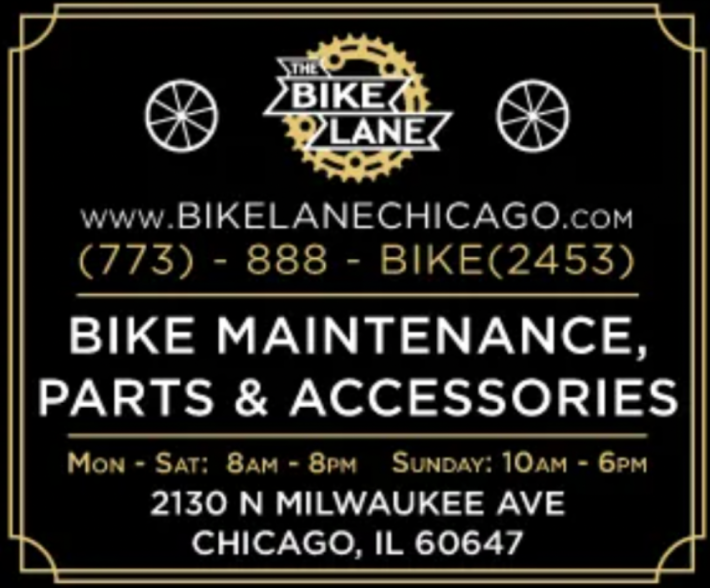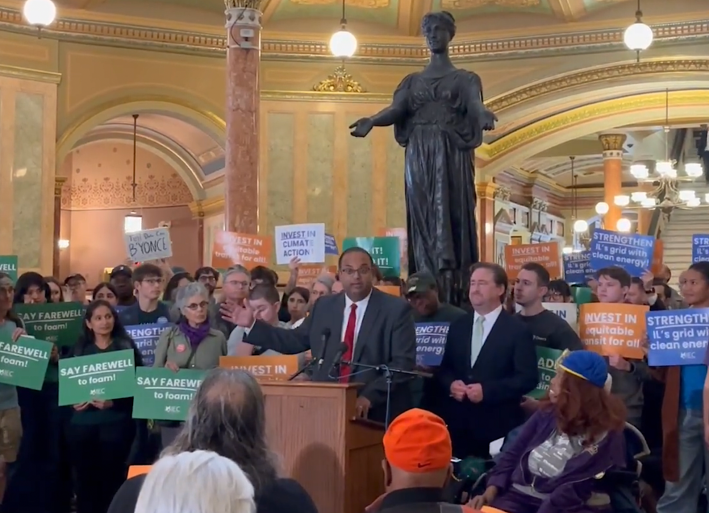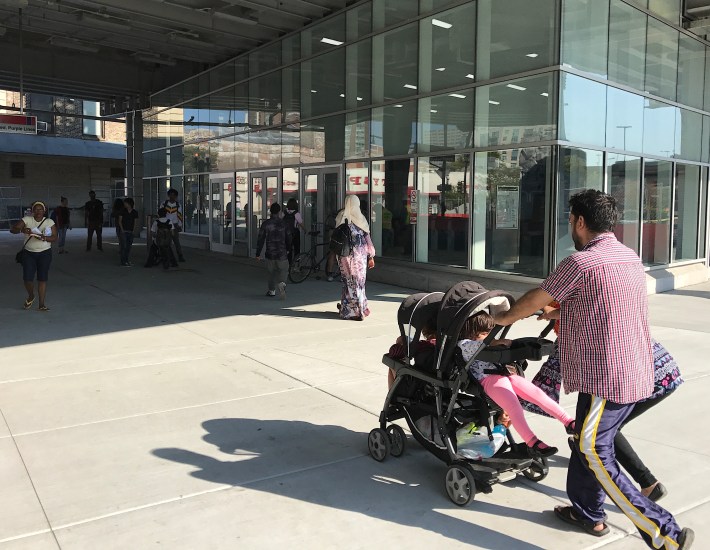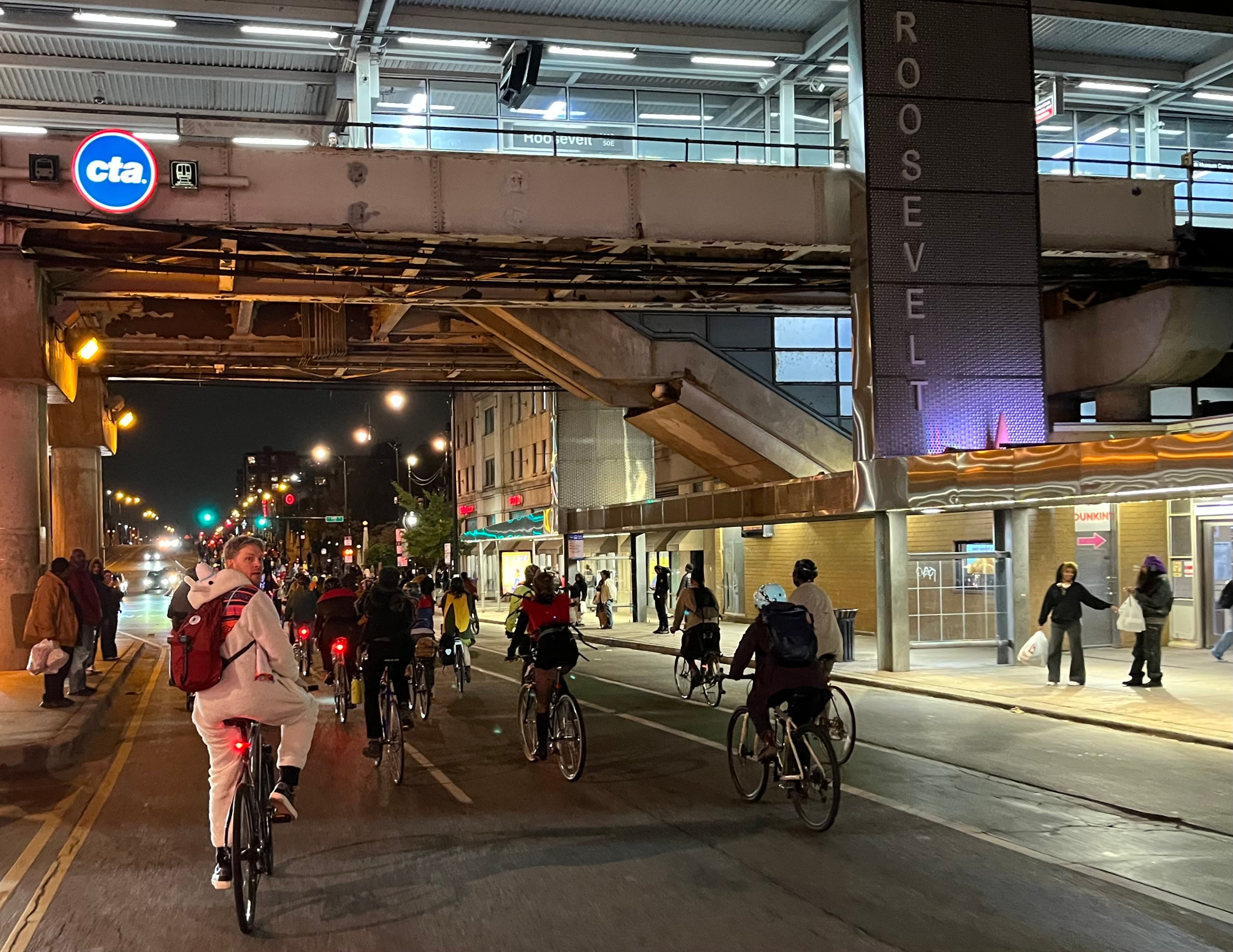
On Friday morning, October 31, Streetsblog interviewed Illinois House Majority Leader Eva-Dina Delgado. She was operating on minimal sleep after staying up until 5 a.m. for the passage of the $1.5 billion transit reform/funding bill at the state capitol. But she was also in a celebratory mood. The legislation she co-sponsored with Rep. Kam Buckner had finally crossed the finish line, not only saving Chicagoland transit, but also paving the way for first-class regional and Downstate bus and train service.
So it's only fair for us to do a postgame interview with her counterpart from the other chamber, Sen. Ram Villivalam, who sponsored the Senate version of the bill. That passed at the very end of the spring legislative session, just before midnight. But due to a hard deadline, unlike on Halloween when politicians could work well past the witching hour, last May there wasn't time for the House to vote on the Senate bill before the Illinois General Assembly turned into a pumpkin.
Here's a quick conversation Sen. Villivalam and I had today, when he presumably had the benefit of being well-rested.

John Greenfield: I view this interview as kind of a victory lap. Congratulations on getting the legislation passed.
There certainly was a lot of drama before we had this Halloween Miracle. You folks passed a bill in the Senate back in May in the literal eleventh hour. Last Tuesday during the fall veto session, the house proposed their version of the bill that involved some completely different revenue sources. And then Governor JB Pritzker, he was very opposed to some the new revenue sources they pitched.
And it seemed like the train might be going off the tracks. But it was very fortunate that the House didn't have the same midnight deadline that the Senate had in the spring. Between the two chambers, you were able to stay up until 4am and get something together that was everyone was willing to live with.
So what's your interpretation of what happened there?
Senator Ram Villivalam: By all accounts, it was everyone's commitment to ensure there weren't massive service cuts to the million-plus people that ride public transit every day and an enormous amount of pink slips that would have gone out for the thousands of workers that provide those transit rides. That was it was a commitment to ensure that that did not happen.
And at the end of the day, when we look at the final legislation, it's very similar in terms of reforms that passed in May out of the Senate. There was a large consensus on the reforms by all the coalitions, and the House, and the governor, and obviously the Senate.
And then as far as the funding mechanisms, I do want to point out that the [House] bill included the efficiencies that we've discussed all along. It included making sure operational dollars could not be used for capital [infrastructure and equipment] projects. It included the existing Road Fund interest going towards capital public transit infrastructure projects. There were a number of items that were included in both versions the House and the Senate bills. And then we look at how we got to the goal is we were able to use funding that is currently there, the motor fuel tax fund, and work to ensure that we give the [Regional Transportation Authority] board the ability to raise additional resources [a 0.25 percent regional sales tax increase.]
Is the 0.25% RTA sales tax increase to fund transit "regressive"? It's not ideal, but paying an extra quarter for a $100 purchase should not be a major hardship.It's certainly less regressive than transit cuts that would have forced people to drive.@rtachicago.bsky.social @atalliance.bsky.social
— Streetsblog Chicago (@chi.streetsblog.org) 2025-11-03T18:59:01.351Z
And so I think when we look at it as a whole, it was everyone's commitment to get to the place of where we ensure there are no massive cuts to service and there are no job losses for essential workers that are providing that transit service.
JG: As Rich Miller from Capitol Fax pointed out in a column that also ran in the Sun-Times today... One of the big thing that happened earlier this year is you folks in the Senate had an issue with [the clout-heavy road builders union Operating Engineers] Local 150 essentially saying, there's no way you're taking money away from the Road Fund [by raising tolls] and using it for transit operations.

But in this final incarnation, they were able to get Local 150 on board with using Road Fund money for transit. They threw them a bone by increasing the tolls [in a way that the union approved of], so the overall revenue is going be greater.
[From the Rich Miller piece: "The heart of the transit funding package is a decision to use all state motor fuel sales taxes to fund mass transit instead of sending that cash to the Road Fund. That brings in about $860 million. Another $200 million will come from a Senate Republican proposal to use annual interest on the massive Road Fund account to fund transit capital projects."
"So, how did the governor convince the politically powerful road-building unions like Operating Engineers Local 150 to go along with diverting sales taxes and earned interest from their precious Road Fund to mass transit?"
"A toll increase. Local 150 had opposed an earlier plan to use increased tolls to fund mass transit because it wanted to increase tolls for tollway capital projects. Pushing a toll hike after the tolls were already increased would be difficult, to say the least."
"So, the bill allows a toll increase of up to about $1 billion a year, with a 4 percent inflation cap. Passenger vehicle tolls haven’t been increased in 13 years, but they’ll go up by 45 cents and commercial vehicle tolls will rise by 30 percent."
Read Miller's full column at the Sun-Times or Capitol Fax.]
Would you say that Local 150's actions here made the difference in being able to pull this off?
SRV: I think both coalitions, the Labor Alliance for Public Transportation Coalition and the Illinois Clean Jobs Coalition, along with the Chicago Metropolitan Agency for Planning, put forth an effort to reach this moment and this compromise in a very broad consensus. I do think, just to point out for the record, the stance back in May by organized labor was to reject a tolling surcharge. They did agree on the Road Fund interest back then as well. And so they've been, I think, collaborative from the beginning. And I think they were even more collaborative in the last week in trying to find a path to ensure we avoid massive cuts to service and job losses.
JG: This is probably one of the most important things you've ever done during your career as a senator. How are you feeling about this accomplishment?
SRV: I don't know that it's hit me completely yet. I'll be honest. [Laughs.] Certainly, everything that we have worked for and towards for the last three years is to build a transformative public transit system for the next several decades.
And I keep going back to the commute being easier for the veteran trying to get to Hines VA to access his or her health care. I think about the IBEW Local Nine worker who, during the last public transit fiscal cliff crisis, lost his job and was was headed in a different direction. And if it wasn't for them stepping up in that moment and allowing him to work again, and now he's training other people in at their facility in Will County... I think about him. I think about the people that he's helping do.
I think about my mom, who took a CTA bus with my brother, who was six at the time, and my sister, who was a newborn, and she had to go to her computer labs at Northeastern Illinois University on weeknights. And if it wasn't for that CTA bus and that CTA bus operator, I don't know that I am where I am today.

And so I think it's going to hit me as we go. And frankly, there's a lot more work to still do to make sure we achieve the goals of safety and reliability and accessibility integration, and make sure that all of the agencies are accountable to taxpayers.
But certainly, I'm incredibly proud of the effort and the product that we've put forward with all of the stakeholders involved, and all of our constituents involved.

Do you appreciate Streetsblog Chicago's paywall-free sustainable transportation reporting and advocacy? We officially ended our 2024-25 fund drive in July, but we still need another $42K+ to keep the (bike) lights on in 2026. We'd appreciate any leads on potential major donors or grants. And if you haven't already this year, please consider making a tax-deductible donation to help us continue publishing next year. Thank you!






